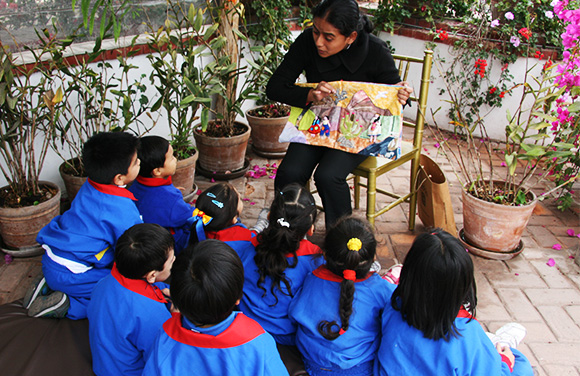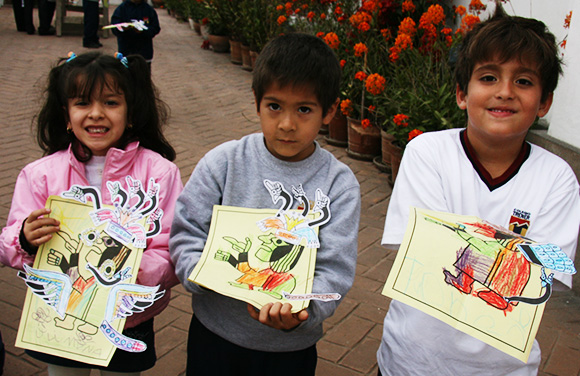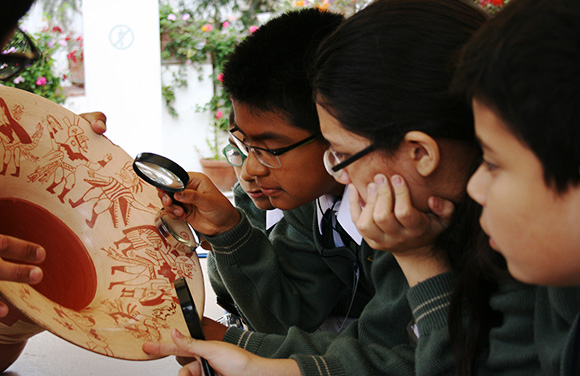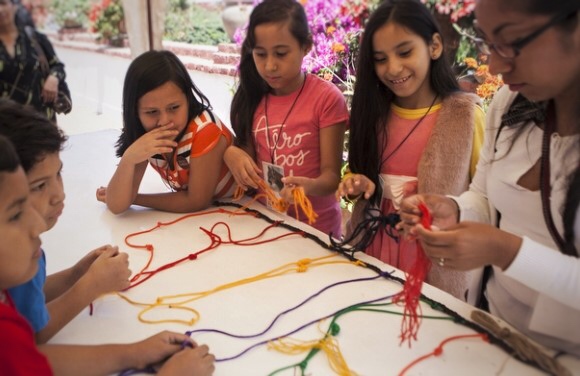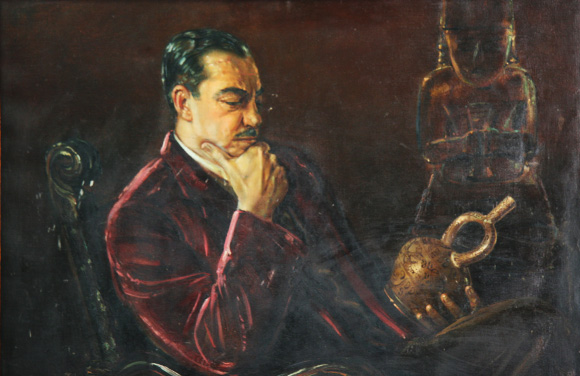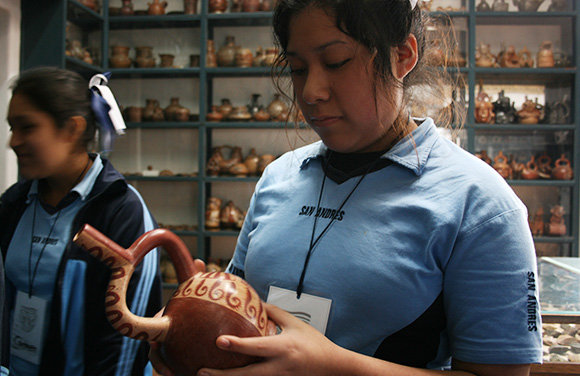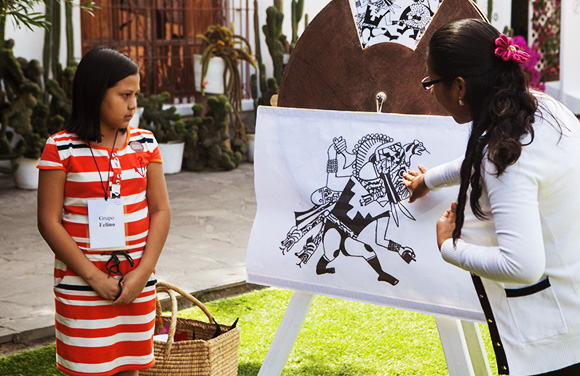What is our educational approach?
The Museo Larco’s programs have been designed to incorporate the educational approaches inherent in museum education, which involves research and learning based upon historical/artistic objects. We employ a range of methodologies, such as question-based learning, visual thought didactic strategies, practical learning and the theory of multiple intelligences.
What do the school programs expect to achieve?
The programs incorporate a range of activities: children explore, read, draw, create and interpret, as well as talking and debating among themselves. In this way, students actively construct new knowledge during their museum visit. These special activities also enable a broadening of abilities and the development of new skills among the participants. Our educational initiative works to stimulate and raise the awareness of students concerning cultural heritage, proposing a different way to visit and understand the concept of a museum, while giving students the opportunity for emotional and cognitive contact with the earliest cultures that occupied Peruvian territory.
What materials are used in the school programs?
The programs included pre- and post-visit materials which are sent to teaching staff by e-mail. These materials are composed of instructions, activities and content with which to prepare the students for the experience, as well as complementing and reinforcing the learning process experienced during the museum visit. During the programs, students will be encouraged to keep field notebooks, using them to record their visit in the form of a journal.
Who leads the educational programs?
The programs are lead by the Museo Larco’s museum educators; students and professionals in the fields of education, history, archaeology, art, anthropology and tourism who receive ongoing training in themes associated with our collection, as well as training in Museum Education.
